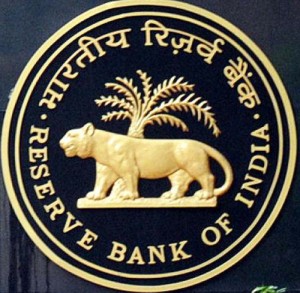In this blog post, Vyoma Mehta, a student of NMIMS, School of Law, who is currently pursuing a Diploma in Entrepreneurship Administration and Business Laws from NUJS, Kolkata, discusses the circumstances under which the government can cancel the registration under FCNR.
The current volatility of the Indian rupee calls for better investment options for the non-resident Indians, without worrying about currency risks. One such available option is the Foreign Currency Non-Resident Account. An FCNR account is a term deposit account which can be maintained by non-resident Indians and persons of Indian origin in foreign currency. It is imperative to note that the FCNR account is a fixed deposit account and not a savings account. The primary necessity concerning the FCNR account is that the funds deposited in the said account must come from overseas funds.[1]
Initially before 2011, the foreign currency deposits could be maintained in six currencies – US Dollar, Japanese Yen, Australian dollar, Pound sterling, Canadian dollar, and Euros. However, after October 2011, the Reserve Bank of India decided that an authorized dealer bank could accept foreign currency deposits in any permitted currency (a foreign currency which is freely convertible).[2] The interest rates on an FCNR account are different from currency to currency as well as among the various banks. Example: the interest rate for the US dollar would be in the range of 2.5-3% whereas for the Australian dollar, it would be anywhere between 5-6%, for a given year. The interest on the FCNR account in India is tax-free, but it is imperative to note that a person may be subject to tax in the country of their residence for such interest. There are several ways in which a foreign currency non-resident account can be opened[3]:
- Funds from an overseas bank account can be transferred directly to open an FCNR account. The transfer may be that of a wire transfer or cheque transaction.
- Funds can be transferred from an existing non-resident external rupee account.
- A foreign currency non-resident account can also be opened by using foreign currency notes or traveler cheques when one visits India.
A FCNR account can be opened for a minimum period of a year and maximum period of five years. In the case of a foreign currency deposit, a premature withdrawal is permissible. However, the same will be subject to a penalty being an interest of 1%.
Procedure for opening a FCNR account
An FCNR account can be opened from a foreign country after all the necessary conditions are fulfilled. To open a term deposit account, the following documents are to be submitted to the particular bank[4]:
- The account opening form with the signature which is verified by the overseas bank or the Indian embassy/ consulate/ high commission or a notary public.
- Passport size photographs.
- Copies of passport and visa duly attested.
- Proof of foreign address.
- Initial remittance.
Several other documents such as a canceled cheque, overseas bank statement, income documents may be required. The requirement regarding the documents may also vary from country to country and between banks.
The FCNR funds can be raised in foreign countries by banks. Further, the banks can sell the foreign currency for Indian rupees in accordance with the existing exchange rate and use the Indian rupees for domestic lending. The time, at which a foreign currency deposit becomes due for maturity, banks would need foreign currency to pay the depositor. Waiting until the last moment to purchase foreign currency would leave the banks open to an exchange rate risk and thus to protect themselves from the risk, banks hedge their foreign currency commitments by entering into forward contracts.
Powers of the Reserve Bank of India
The Reserve Bank of India under the Banking Regulation Act has the power to prohibit or caution banking companies generally or any banking company in particular against entering into any particular transaction or class of transactions and give advice to any banking company. [5]Thus, to open an FCNR deposit account, every bank has their terms and conditions which are to be followed and a procedure for opening the term deposit account. However, under the Banking Regulation Act, the Reserve Bank of India given certain powers, may advise the banking companies to proceed in this particular area with caution as if a bank is ready to deal with in foreign currency open a foreign currency non-resident account then there are exchange rate risks which the banking company is signing up to take. To keep the banking industry in check, the Reserve Bank of India may forbid certain banks from transacting in foreign currency matters.
Foreign Contribution Regulation Act
The Foreign Contribution Regulation Act is an Act which consolidates the law to regulate the acceptance and utilization of foreign contribution or foreign hospitality by certain individuals or associations or companies and to prohibit acceptance and utilization of foreign contribution or foreign hospitality for any activities detrimental to the national interest and for any matters which are connected therewith and incidental thereto.[6]
The Foreign Contribution Regulation Act is a concept which is a little different from that of a FCNR deposit. Under the Foreign Contribution Regulation Act, a contribution can be made in foreign currencies by individuals, companies or associations which are not residing in India.
The Act imposes restrictions on acceptance of foreign hospitality by certain specified persons. It mandates that no member of a Legislature or office-bearer of a political party or Judge or Government servant or employee of any corporation or any other body owned or controlled by the Government shall, while visiting any country or territory outside India, accept, except with the prior permission of the Central Government, any foreign hospitality.[7] However, such permission would not be necessary for an emergent medical aid needed on account of sudden illness contracted during a visit outside India. The term ‘foreign hospitality’ is defined to mean any offer, not being a purely casual one, made in cash or kind by a foreign source for providing a person with the costs of travel to any foreign country or territory or with free boarding, lodging, transport or medical treatment.[8]
Apart from this, the Central Government is empowered to prohibit any person or organization not specified in the Act from accepting any foreign contribution and to require any person or class of persons, not specified in the Act to obtain prior permission of the Central Government before accepting any foreign hospitality.
The Act mandates that except as otherwise provided in the Act, no person having a definite cultural, economic, educational, religious or social program shall accept a foreign contribution unless such person obtains a certificate of registration from the Central Government. In case a person falling in the above category is not registered with the Central Government, it can accept foreign contribution only after obtaining prior permission of the Central Government. [9]
The Act imposes a prohibition, on persons registered and granted a certificate or who have obtained prior permission under the Act, from transferring such contribution to any other person, unless such other person is also registered and had been granted a certificate or obtained the prior permission under the Act.[10] Certain restrictions have been imposed on the utilization of the foreign contribution received, and the Act mandates that the foreign contribution shall be utilized only for the purposes for which contribution was received. No foreign contribution or any income arising out of it can be used for speculative purposes. The Act has restricted the use of a foreign contribution for defraying administrative expenses.
The Act empowers the Central Government to prohibit any person or organization not specified in Section 3 from accepting any foreign contribution and also to require any person or class of persons not specified in Section 6 to obtain prior permission of the Central Government before accepting any foreign hospitality.
Footnotes:
[1] http://timesofindia.indiatimes.com/nri/other-news/All-you-wanted-to-know-about-FCNR-accounts/articleshow/17955437.cms – Deepa Venkatraghavan. (20th April 2016)
[2] http://timesofindia.indiatimes.com/nri/other-news/FCNR-swap-deal-What-it-means-for-NRIs/articleshow/23309748.cms (20th April 2016)
[3] Supra Note 1
[4] Supra note 1
[5] Section 36, Banking Regulation Act, 1949
[6]http://lawmin.nic.in/ld/regional languages/THE%20FOREIGN%20CONTRIBUTION%20(REGULATION)%20ACT,2010.%20(42%20OF%202010).pdf
[7] https://www.rbi.org.in/scripts/BS_ViewMasCirculardetails.aspx?id=7327#7
[8] Id
[9] Section 11, Foreign Contribution Regulation Act, 2010
[10] Section 7, Foreign Contribution Regulation Act, 2010
 Serato DJ Crack 2025Serato DJ PRO Crack
Serato DJ Crack 2025Serato DJ PRO Crack












 Allow notifications
Allow notifications


